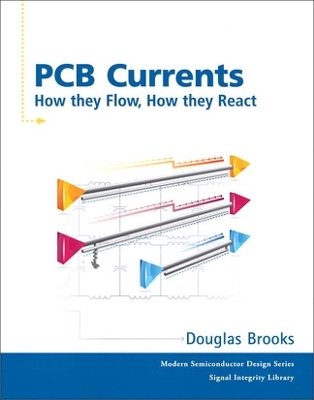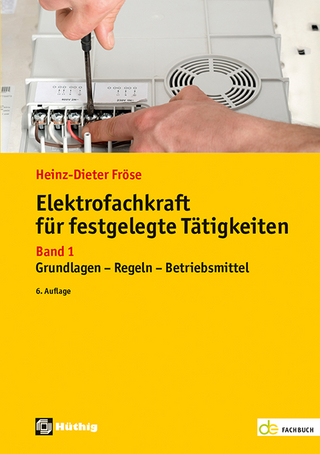
PCB Currents
Pearson (Verlag)
978-0-13-487847-8 (ISBN)
Today, PCB designers must deal with issues such as crosstalk and EMI-–issues that were once associated only with components. This requires electronics knowledge that many PCB designers never gain through formal training. In PCB Currents, renowned PCB designer Douglas Brooks teaches these essentials descriptively, in plain English, with as little reliance on mathematics as possible. Building on his widely praised seminars, Brooks explains what current is, how it flows, and how it reacts. He begins by reviewing the nature of current, and then explains current flow in basic circuits, discusses sources that supply and drive current, and addresses the unique problems associated with current on PCBs. Brooks concludes by thoroughly illuminating signal integrity issues caused by current flow. He offers practical design solutions for each common type of problem, as well as for complex challenges involving very high frequency harmonics and very short wavelengths.
Coverage includes
• Current: its fundamental nature, basic definitions, and key concepts
• Five fundamental laws of current, including Kirchoff’s law and Ohm’s law
• Basic circuit concepts: resistive circuits, reactive circuits, and impedance
• Voltage and current sources: Where electrons come from and why they move
• Current-related PCB issues: temperature, transmission lines, reflections, coupled currents, power distribution, skin effect, dielectric losses, and vias
• Solutions for signal integrity issues caused by current flow, from on-board inductance and apparent resistance changes to more complex problems
The text is written to be accessible and valuable for PCB designers at all levels of experience, whether they have engineering training or not.
Douglas Brooks has a B.S./E.E. and an M.S./E.E. from Stanford University and a Ph.D. from the University of Washington. He has had forty years of experience in the electronics industry, ranging from circuit design engineer on the space program to president of his own manufacturing company. For the past twenty years he has been president of UltraCAD Design, Inc., a premier PCB Design Service Bureau in the Pacific Northwest. Brooks has published hundreds of articles during his career. In the last twenty years, these articles have appeared in PCB Design Magazine, on Iconnect007’s websites, on Mentor Graphics’ web pages, and on UltraCAD’s web pages. In 2003, he published the book Signal Integrity Issues and Printed Circuit Board Design (Prentice Hall). Brooks served on the faculty of San Diego State University for three years and was a visiting associate professor at the University of Washington for one year. He has given numerous seminars on Signal Integrity Issues in PCB Design over the past fifteen years all over the United States and in Moscow, Beijing and Shanghai, Taiwan, Japan, and Australia. Brooks finally retired in 2012.
Part I: Nature of Current
Chapter 1: Electrons and Charges
Chapter 2: Basic Current Concepts
Chapter 3: Basic Current Laws
Part II Current Flow In Basic Circuits
Chapter 4: Resistive Circuits
Chapter 5: Reactive Circuits: Capacitors and Capacitance
Chapter 6: Reactive Circuits: Inductors and Inductance
Chapter 7: Reactive Circuits: Resonance
Chapter 8: Impedance
Chapter 9: Real Components and Parasitics
Chapter 10: Time Constants and Filters
Chapter 11: Transformers
Chapter 12: Differential Current Flow
Chapter 13: Semiconductors
Part III: Voltage and Current Sources
Chapter 14: Voltage and Current Sources
Chapter 15: Where Do Currents Flow on Circuit Boards
Chapter 16: Current and Trace Temperatures
Chapter 17: Current Reflections
Chapter 18: Coupled Currents/EMI/Crosstalk
Chapter 19: Current Distribution and Bypass Capacitors
Chapter 20: Frequency-Variable Resistance and Lossy Transmission Lines
Chapter 21: Currents and Vias
Chapter 22: Current and Signal Integrity
Appendices:
Appendix A:Current flow and Maxwell
Appendix B: Eye diagrams
Appendix C: Death of the Circuit Board
| Erscheinungsdatum | 08.12.2017 |
|---|---|
| Sprache | englisch |
| Maße | 175 x 226 mm |
| Gewicht | 1250 g |
| Themenwelt | Technik ► Elektrotechnik / Energietechnik |
| ISBN-10 | 0-13-487847-7 / 0134878477 |
| ISBN-13 | 978-0-13-487847-8 / 9780134878478 |
| Zustand | Neuware |
| Informationen gemäß Produktsicherheitsverordnung (GPSR) | |
| Haben Sie eine Frage zum Produkt? |
aus dem Bereich


